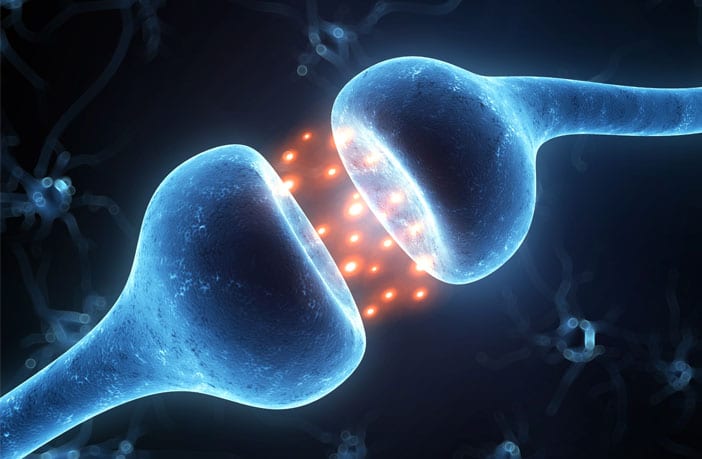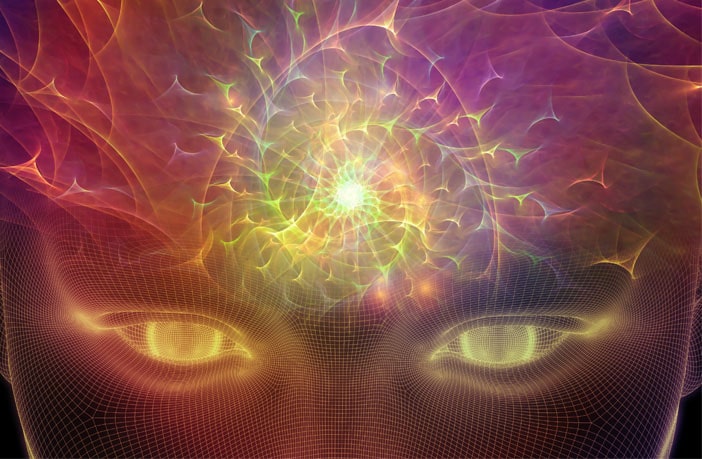According to Barrett, emotions aren’t reactions to the world. Rather, emotions actually construct our world.
Thursday, August 31, 2017
Emotions may be more changeable than we thought
Radical Theory Overturns Old Model of How Emotions are Made.
Meditation continues to show benefits
General article on recent research showing reductions in stress, etc.
Ecstasy now FDA Breakthrough Drug for PTSD
Ecstasy Was Just Labelled a 'Breakthrough Therapy' For PTSD by The FDA. We are now that much closer to stage 3 clinical trials for MDMA.
This on the heels of recent research showing that MDMA facilitates changes in basic personality traits such as openness and neuroticism, traits that were previously thought to be fixed in adults until psilocybin was shown to make people more open.
This on the heels of recent research showing that MDMA facilitates changes in basic personality traits such as openness and neuroticism, traits that were previously thought to be fixed in adults until psilocybin was shown to make people more open.
Tuesday, August 8, 2017
Testing Psychedelic Microdosing
Small amounts of psychedelics, often below a threshold that would make the user feel significantly altered, are said to be a useful cognitive and mood enhancer. The Plan to Prove Microdosing Makes You Smarter describes the Beckley Foundation's plan to test how well people do on the task of playing the game Go while using microdoses of LSD.
I have one data point for this. Back in the day, several decades ago, during my one and only experience with LSD, I played the arcade game Asteroids. It was a strange experience because it didn't seem like "I" was playing. I was looking at the screen, my hands were touching the controls and moving, but it was as if "I" had no part in it. It was just happening as I watched, there was no conscious intent, cognition, planning, or strategy. It was just happening. And I got my highest score ever, before or since, by about 30%. I think sometimes it can be helpful to get the conscious mind out of the way and just let the underlying mind do what it does without interference.
In my own experience, which is maybe unique in a way, I don't particularly care for microdosing. Once I became "good" at meditation I became much more sensitive to psychedelics. My standard dose became on average a tenth of what it was before. And when I microdosed, even down to as little as 1/200 of my previous standard dose, I noticed it. In my case I'd just as soon do without it, or go to my "full" dose rather than go halfway.
Monday, August 7, 2017
Buddhist Geeks - Meditating on Psychedelics
I was interested to see this podcast show up, both because of the subject matter (Meditating on Psychedelics), and the fact that for me it marked the return of Buddhist Geeks, a podcast that had been more or less pronounced dead.
Apparently this was an introductory podcast to usher in a series of episodes on the topic, which in theory I look forward to. This was a fairly lukewarm, delicate, kind of "make sure we're not stepping on anyone's toes" kind of thing, mainly focusing on the need to be flexible and open about what is for some a controversial topic. It is what it is. The last 20 percent of the podcast was a plea for funding, which I understand, but sheesh.
A survey had been sent out to followers to gauge where people are on the subject of Buddhism and psychedelics. For myself, I didn't feel like I fit into any of the categories and it's not as if I have no views on the subject. To me it's kind of like anything else - psychedelics are neither "good" nor "bad". There is an entire spectrum of experiences. After listening to the podcast and decoding the thrust of the survey I would have to pick the "Psychedelic Buddhist" category, which is essentially a "maybe" category, saying “yes to the mixing of the Psychedelics and Buddhism and at the same time acknowledging that there are downsides, things to watch out for, and much that is still not well understood about the pairing."
I do sincerely wish that every person could get to the point where they could feel good about themselves, become familiar with their psychological makeup, maybe do a bit of meditation, and slowly work up to a psychedelic experience starting from low/medium doses in a safe setting, keeping in mind the advice from any number of reasonable Psychedelic Trip Guides.
My view might be something like Sam Harris', who when thinking about his daughter growing older and experimenting with substances, felt that his greatest fear was that his daughter wouldn't try a psychedelic at some point. Of course Sam is perhaps being strong in making a point, but the fear is that to live a human life, and to not experience what is possible, and perhaps even probable given the considerations above, the unimaginable power, glory, and freedom of a genuine mystical experience, that would indeed be a tragedy. Your mileage may vary.
As to the Buddhist or spiritual direction, I would say the psychedelic experience is indeed conducive to these kind of insights, and more generally insights of any kind. The other side of that is that the mind may be presented with so many ideas and connections that it may tend to run off into those and lose itself in them. Keeping the mind in a meditative mode while under the influence of a psychedelic is actually the best way to raise the odds for an amazing experience.
As far as the BG podcast, a bit more "meat" in the form of some surprising views from Vince Horn on the subject of Buddhism can be found in the previous episode Stirrings from the Bardo.
Apparently this was an introductory podcast to usher in a series of episodes on the topic, which in theory I look forward to. This was a fairly lukewarm, delicate, kind of "make sure we're not stepping on anyone's toes" kind of thing, mainly focusing on the need to be flexible and open about what is for some a controversial topic. It is what it is. The last 20 percent of the podcast was a plea for funding, which I understand, but sheesh.
A survey had been sent out to followers to gauge where people are on the subject of Buddhism and psychedelics. For myself, I didn't feel like I fit into any of the categories and it's not as if I have no views on the subject. To me it's kind of like anything else - psychedelics are neither "good" nor "bad". There is an entire spectrum of experiences. After listening to the podcast and decoding the thrust of the survey I would have to pick the "Psychedelic Buddhist" category, which is essentially a "maybe" category, saying “yes to the mixing of the Psychedelics and Buddhism and at the same time acknowledging that there are downsides, things to watch out for, and much that is still not well understood about the pairing."
I do sincerely wish that every person could get to the point where they could feel good about themselves, become familiar with their psychological makeup, maybe do a bit of meditation, and slowly work up to a psychedelic experience starting from low/medium doses in a safe setting, keeping in mind the advice from any number of reasonable Psychedelic Trip Guides.
My view might be something like Sam Harris', who when thinking about his daughter growing older and experimenting with substances, felt that his greatest fear was that his daughter wouldn't try a psychedelic at some point. Of course Sam is perhaps being strong in making a point, but the fear is that to live a human life, and to not experience what is possible, and perhaps even probable given the considerations above, the unimaginable power, glory, and freedom of a genuine mystical experience, that would indeed be a tragedy. Your mileage may vary.
As to the Buddhist or spiritual direction, I would say the psychedelic experience is indeed conducive to these kind of insights, and more generally insights of any kind. The other side of that is that the mind may be presented with so many ideas and connections that it may tend to run off into those and lose itself in them. Keeping the mind in a meditative mode while under the influence of a psychedelic is actually the best way to raise the odds for an amazing experience.
As far as the BG podcast, a bit more "meat" in the form of some surprising views from Vince Horn on the subject of Buddhism can be found in the previous episode Stirrings from the Bardo.
Friday, August 4, 2017
Your Brain Hallucinates Your Reality
No human being has ever experienced anything other than their own consciousness. The universe we experience is a map of what may or may not be "out there". This is the insight being pointed at in Your Brain Hallucinates Your Reality on YouTube.
Ketamine produces anti-anxiety effects
Ketamine, the dissociative anesthetic with psychedelic properties,
"can reduce symptoms of treatment–resistant anxiety disorders.
Previous research had found that ketamine produced an antidepressant effect in patients with treatment-resistant major depressive disorder. The new study provides the first evidence that ketamine improves symptoms of anxiety in patients with treatment-resistant anxiety who are not currently depressed."
Psilocybin helps depressed patients ‘re-connect’ to the world
“The reset switch had been pressed so everything could run properly, thoughts could run more freely, all these networks could work again. It unlocked certain parts which were restricted before,” one participant explained.
“I got a wider perspective, I stepped back. It helped me appreciate that the world is a big place that there’s a lot more going on than just the minor things that were going on in my head,” another participant told the researchers.
A third remarked: “My previous treatments, talking therapy and meds, were next to useless, utterly useless. My experience of psilocybin has been very positive. I believe there is an unknown physiological and neurochemical change in me, I am absolutely convinced of that.”


